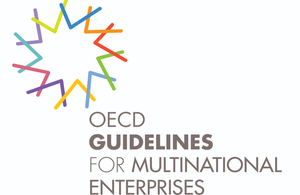Give your views on the OECD’s stocktaking exercise
Online public consultation to gather views and experiences of all stakeholders in relation to a stocktake of the OECD Guidelines for Multinational Enterprises.

The OECD is launching a public consultation to ensure the stocktaking exercise on its Guidelines benefits from views and experiences of all stakeholders.
The public consultation is open to stakeholders from all countries, including:
- businesses
- industry groups
- civil society organisations
- trade unions
- academia
- interested citizens
- international organisations
- governmental experts (including from non-adherent countries)
Along with this the OECD is also conducting a consultation process to seek input on the stocktaking exercise from other relevant OECD committees and working parties.
Have your say
Please submit your inputs directly to the OECD via the link below by 18:00 (CET) Tuesday, 14 September 2021.
Stocktaking exercise
In 2020, the OECD Working Party on Responsible Business Conduct (WPRBC) initiated a stocktaking exercise to assess:
- the OECD Guidelines
- their implementation
- the OECD’s work on responsible business conduct
The purpose of the stocktaking is to take account of the important developments, achievements and challenges related to the OECD Guidelines.
It will also look at their unique grievance mechanism the National Contact Points for RBC, as well as the ecosystem in which the OECD Guidelines are implemented. In support of the stocktaking exercise, the WPRBC has developed a draft stocktaking report.
OECD Guidelines
2021 marks the 10th anniversary since the OECD Guidelines for Multinational Enterprises (OECD Guidelines) were last revised.
The Guidelines set out the voluntary principles and standards for responsible business conduct, covering:
- disclosure
- human rights
- employment and industrial relations
- the environment
- combating bribery
- consumer interests
- science and technology
- competition
- taxation
The UK National Contact Point (UK NCP) is responsible for promoting the OECD Guidelines and for operating the complaints mechanism set out in the guidelines.